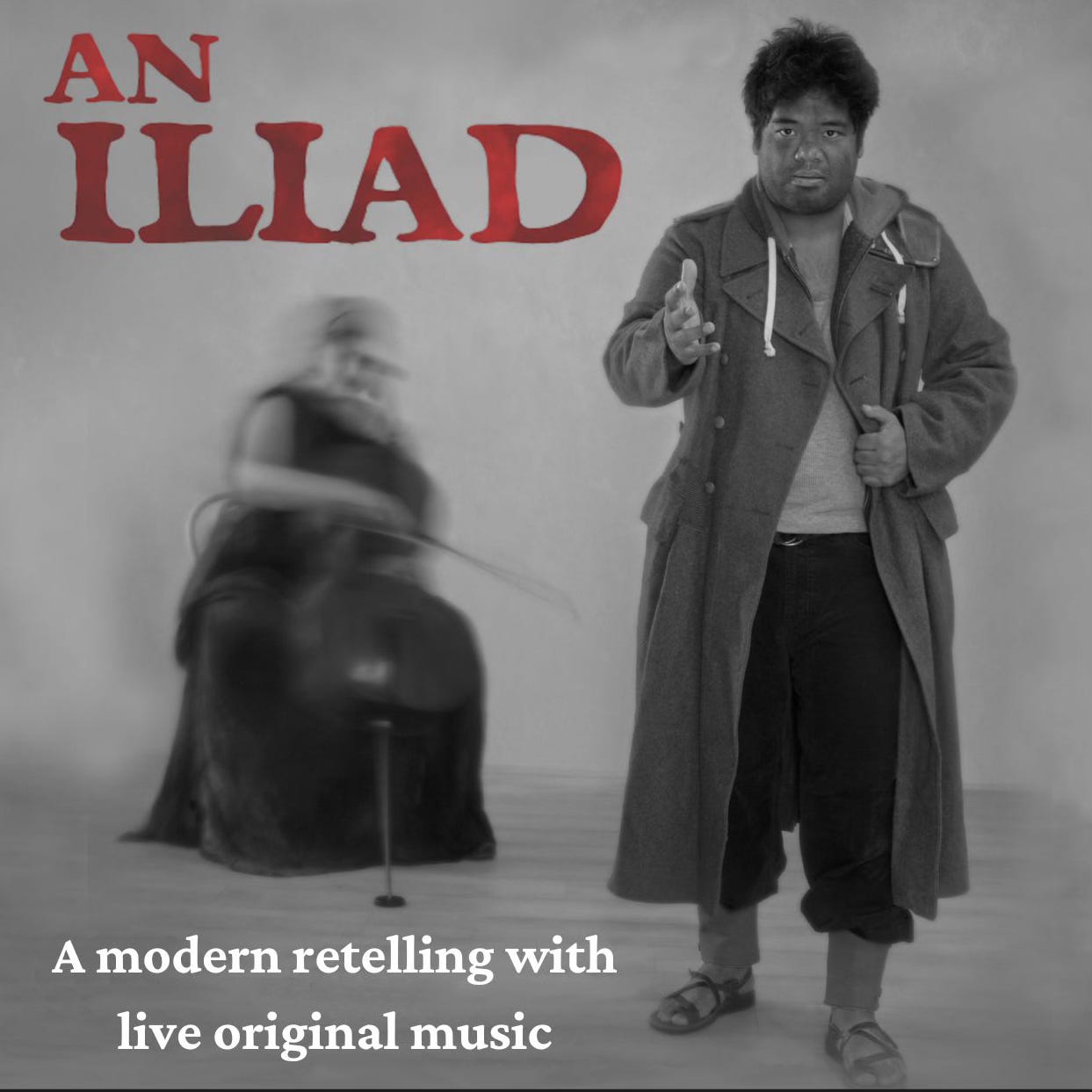Back then, oh I could sing it. For days and nights. On and on, every battle, every old digression, I would sing and sing ... in Mycenae once I sang for a year-you don't believe me? In Babylon, I sang it differently, but the crowds came .... in Alexandria I started to notice a few empty seats, but still I sang it. Shorter though-three or four days. Know where it went down really well? Gaul, something about those people, they had a real taste for it-of course they were hard to control, they used to get up on tables and sing along, they threatened to take the whole thing over, went outside, screaming, building fires, terrible.
Every time I sing this song, I hope it's the last time. — THE POET, An Iliad
In May, we will help bring “An Iliad” performed by Paul Susi in collaboration with cellist Anna Fritz back inside Oregon prisons. In this breathtaking show, the Poet (Paul Susi) sings of the Trojan War with the conflict between Achilles and Hector framing the action. The Poet has sung this war for centuries and the palimpset of conflicts and lost soldiers has beaten the very glory from his tale. The Muse (Anna Fritz) prods his telling with her original cello score as the Poet lumbers through the trenches. The audience topples alongside The Poet as we come to the poignant question: How do we let go of rage? We intend to publish writing in response to the work by OSP and Coffee Creek audience members in mid-June.
In “A Survivor,” Nolan James Briden (OSP’s own Poet) travels back a generation to sing his family history forward: The 1950s were tough as she walked into the blizzard’s weather. Her feet touched the same ground that her mother, father, grandmothers-grandfathers did, since Napi first made humans. As Nolan’s vision grows, as how his poetic understanding of his place in the world is connected to the compassion of strangers, the loss of culture and language of his people, and the visceral and dynamic “connection to the earth, spirit, and creator” that are alive and well in his body and his writing.
Our writer Chris Lewis has been building an informal writing community at Snake River in Ontario (we are hoping to grow the program to meet with these folks face-to-face!) In the meantime, kytes arrive addressed to our partners Lakota Oyate-ki Culture Club and the stories are brought into the circle. In “Universal Country Roads,” the writer SKD hears the familiar John Denver song in a train station tunnel on the other side of the world. He is displaced from home and family. The disconnect and reconnect of hearing this song provides him with a synthesis of how his loneliness and his sense belonging are intertwined. | TDS


